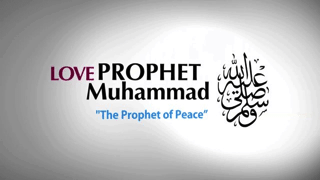Daily Qur’an Reflections: (4) Al-Imran 92-200 and Nisa’ 1-23 – Shaykh Faraz Rabbani
In this series, Shaykh Faraz Rabbani and Ustadh Tabraze Azam, SeekersHub Global Instructors, share a day by day overview of key themes of each section (juz’) of the Qur’an, over the month of Ramadan. This is covered nightly at IMO of Toronto, where SeekersHub Toronto (www.seekers.flywheelstaging.com) is conducting its Ramadan 2013 programming.
Day 4: Juz’ Four: Surat Al-Imran [3.92-200] & Surat al-Nisa’ [4.1-23]
In today’s verses, we’ll be completing Surat Al-Imran, and starting Surat al-Nisa’. The four key themes of Juz’ 4 of the Qur’an are: (1) Allah’s call to embracing gentleness; (2) how to have excellence in making decisions; (3) thankfulness for the gift of the Prophet (Allah bless him and give him peace); and (4) remembrance, reflection, and the keys to eternal success.

[1] Gentleness: The Prophetic Way
Gentleness is the sunna, as it is mercy expressed in attitude and action.. The Prophet (Allah bless him and give him peace) said, “Allah is Gentle and loves gentleness, and He gives for gentleness what He doesn’t give for harshness or for anything else.” He also said, “Allah loves gentleness in all things.”
“By an act of mercy from God, you [Prophet] were gentle in your dealings with them– had you been harsh, or hard-hearted, they would have dispersed and left you…” [Qur’an, 3.159]
It is the loss of this Prophetic way of gentleness and mercy that harms relations. And it is perceived harshness that keeps so many so far away from our community’s institutions. Let’s make a concerted effort to embody this high quality of gentleness, by learning and living the example of the Prophet of Gentleness (peace and blessings be upon him).
[2] Excellence in Decisions and Trust in Allah
Allah Most High instructs us to consider carefully and consult properly before making choices. Then, when we realize that a certain course of action is the best and most beneficial, we should place our trust in Allah and pursue it with full resolve, without hesitation:
“…Consult with them about matters, then, when you have decided on a course of action, put your trust in God: God loves those who put their trust in Him.”[Qur’an, 3.159]
The call is to take the best, most effective, and beneficial of means towards the most beneficial of aims–while trusting fully in Allah alone.
[3] The Tremendous Gift: The Prophet (Allah bless him and give him peace)

Allah Most High makes it clear that the greatest gift we have been granted is the Gift of Mercy–our Beloved Messeneger (peace and blessings be upon him):
“God has truly showered His favours upon the believers in sending them a Messenger from among their own…” [Qur’an, 3.164]
This verse is a call (1) to recognize the greatness of this Gift; (2) to appreciate the Gift; and (3) to express one’s thankfulness (shukr) as befits the greatness of the Gift (peace and blessings be upon him).
The verse then mentions the four central roles of the Prophet (Allah bless him and give him peace):
“… He conveys to them Allah’s verses and he purifies them; and he teaches them the Book and Wisdom–though before this they were in manifest misguidance.” [Qur’an, 3.164]
Recite this verse often. Reflect on the tremendousness of Allah’s Gift–and what the Prophet (Allah bless him and give him peace) represents in your life. Then reflect on how to express your thankfulness.
[4] Reflection and Remembrance Resulting in Patience and Resolve–and Eternal Success

The Messenger of Allah (peace and blessings be upon him) would recite the ten closing verses of Surat Al-Imran [3.190-200] when he would get up for his night worship.
These verses describe reflection (fikr) of true believers, on the signs of Allah in creation, and how this reflection results in and is nurtured by consistent remembrance (dhikr).
This reflection and remembrance are keys to having clarity of intention, aim, and purpose in life. This clarity should then translate into virtuous action through (1) patience (sabr), (2) high resolve, (3) fortifying oneself; and (4) embracing mindfulness (taqwa) in life. The result is complete, eternal success (falah):
“You who believe, be patient; out-do others in patience; fortify yourself; and remain mindful of Allah–so that you may attain eternal success.”[Qur’an, 3.200]
Key terms:
Patience (sabr) is to remain firm on what is pleasing to Allah.
Fortifying oneself (ribat) is to hold oneself down on those matters that will strengthen one’s faith and help one attain Allah’s pleasure.
Mindfulness (taqwa) is to shield oneself from all that displeases Allah. There are three levels of mindfulness (taqwa):
(1) The mindfulness of faith (iman) is to shield oneself from eternal punishment through embracing faith.
(2) The mindfulness of submission (islam) is to shield oneself from sin through embracing obedience.
(3) The mindfulness of spiritual excellence (ihsan) is to shield oneself from heedlessness and distraction through complete turning to Allah Most High.
Complete, eternal success (falah) is attaining unto the good of this life and the absolute good of the next life, in the ways most pleasing to Allah.
Make it a habit to recite these closing verses of Surat Al-Imran [3.190-200] at night. Reflect on their meanings, and strive to live their transformative realities.
And Allah alone gives success.
Faraz Rabbani and Tabraze Azam
SeekersGuidance / SeekersHub Global NEEDS your HELP: Help us reach seekers, across the world, through completely free Islamic courses, answers, and programs: https://seekers.flywheelstaging.com/donate/ — SeekersHub Global also accepts zakat donations, which are distributed to eligible seekers of knowledge.
In this series, Shaykh Faraz Rabbani and Ustadh Tabraze Azam, SeekersHub Global Instructors, share a day by day overview of key themes of each section (juz’) of the Qur’an, over the month of Ramadan. This is covered nightly at IMO of Toronto, where SeekersHub Toronto (www.SeekersHub.org) is conducting its Ramadan 2013 programming.
